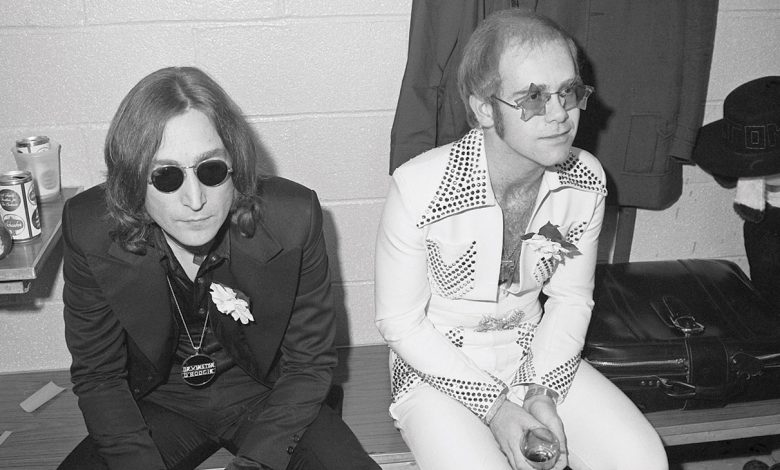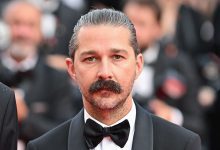Elton John Doc ‘Never Too Late’ Follow Final Tour, Life Transition

In the summer of 2023, Elton John did something unimaginable: He stopped touring.
He had performed at least 90 shows annually for so many years over the past half-century. Yet with the close of his five-year Farewell Yellow Brick Road tour that July, that stage of life was ending.
“I’m 77 years of age. I’ve done all there is to do. I’ve succeeded. I’ve been there. I’ve done it,” he recalled of his decision when speaking Oct. 1 at the New York Film Festival. “I’m still going to make records. I’m still going to have music in my life. But the most important thing in my life [is husband] David, [adolescent sons] Zachary and Elijah, and my family and my friends.”
The end of his touring career was a big personal milestone for John but also a larger cultural moment, given the breadth of his career and the path he paved for other gay entertainers. And so while it’s not a farewell (John has said he’s retired from touring, not working), documentarian R.J. Cutler and John’s husband, David Furnish, decided to co-direct Elton John: Never Too Late, which examines the decisions that led him here. The film opened in theaters Nov. 15 and will debut on Disney+ in December.
“I think it’s Elton finally at a place in his life where he’s ready to step off the stage and fully embrace a life off the road 100 percent, and that’s because he’s in such a happy place. It’s because he feels so loved and supported,” Furnish tells THR.
The announcement that this would be John’s last tour was initially met with skepticism; the road had figured into John’s career too much for him to just leave it behind. But since John ended the tour — with a concert at Dodger Stadium, where he had also performed at the height of his fame in 1975, as well as with a final sendoff in Glastonbury — the singer has not struggled to adjust to full-time domestic life, according to Furnish.
“He is so happy off the road and he doesn’t have a shred or an ounce of regret, because he wanted to go out on a high. He wanted to go out playing and singing at his very best,” Furnish says. (John did perform recently at a concert with Joni Mitchell.)
The decision also came in part because of the toll touring had taken on his body.
“To be honest with you, there’s not much of me left. I don’t have tonsils, adenoids or an appendix. I don’t have a prostate,” John remarked with rueful humor at NYFF. “I don’t have a right hip or a left knee or a right knee. In fact, the only thing left of me is my left hip. But I’m still here.”
Cutler had initially wanted to make the documentary about John’s rise across the first five years of his career, in which he produced 10 hit albums and then eventually disclosed his sexuality in a 1976 interview with Rolling Stone. (At that time, John said he was bisexual; he later came out as gay.) But after talking with Furnish, who wanted to focus on the farewell tour, he found that the two periods spoke to each other.
“Elton’s coming out not only changed his life and sent him on a path to personal fulfillment, but changed the world. [And] when you see Elton and his family come out onstage in the final sequence of the movie, like any family, like any normal family, well, that’s the world we live in now,” says Cutler, who is known for documenting cultural iconoclasts, from Billie Eilish to Anna Wintour. “In a way, the final months could be the spine, and the nervous system that wraps around it could be those first five years of his career.”
John through the ages. Sam Emerson/Courtesy of Disney+
The film cuts between that early period, including John’s upbringing and rise to fame, and the modern farewell tour and glimpse of his home life. Viewers will note that much is missing from the film, including John’s journey to sobriety, his AIDS activism and his friendships with younger musicians like Brandi Carlile, who co-wrote the movie’s titular song.
“There’s a tendency when people are looking at docs to expect a full Wikipedia page of everything that the person ever did,” Cutler says. “And then sometimes, when you do what I do for a living, you hear, ‘But what about that? And what about that?’ But when we look at a film like Maestro, we don’t say, ‘Where are the Black Panthers in Lenny Bernstein’s life, and what about that show that he did? And what about that?’ We understand that the film is a constructed narrative that is choosing elements of the person’s life to tell the story.”
Working with a co-director who is married to your subject might be thought a tricky assignment. But Cutler says there was no pushback from Furnish on any material he wanted to use. Cutler shot the documentary in “chunks,” which he would then send to Furnish, who provided feedback on whether it felt true to life or not.
Furnish “had a whole layer of an emotional barometer and storytelling wisdom, because he was able to be a step away from the nuts and bolts of the filmmaking but also have directorial perspective on it,” Cutler says.
Furnish, it should be noted, directed another, far less varnished film about John, 1997’s Tantrums & Tiaras, which showed some extremely candid moments of the pop star, who had at that point been with Furnish for four years.
Finding new material for this documentary also wasn’t easy considering just how public John’s life has been (plus there was the 2019 biopic Rocketman, which focused on some of the star’s personal demons as well as his creative collaboration with Bernie Taupin).
The filmmakers combed through a trove of material to find previously unreleased audio tapes of John’s Rolling Stone interview with Cliff Jahr; entries from John’s diaries; concert footage, including John’s final performance at Dodger Stadium and with John Lennon at Madison Square Garden; and footage of John and Furnish’s children, who have largely been kept out of the public eye.
“I feel we landed at a place that’s very, very truthful and very truthfully Elton and a nice companion to what Rocketman was, which was a fantasy take on his life as a piece of entertainment. This is the real deal as it happened,” Furnish says.
He does note that this was a different process than Tantrums, in which he says he examined aspects of John’s world that he found odd or were new to him in a kind of “video therapy.”
“It was important to me, in this new documentary, to not try and do Tantrums & Tiaras again,” he says. “It had already been done. Also, Elton’s not that person anymore.”
Disney gave the filmmakers final cut on the movie. For his part, John had only two notes, Cutler says: to include the name of an early producer and to “play it loud.”
Source: Hollywoodreporter
Related Posts
- Roundball Rocked: With NBA Return Looming, NBC Purges Scripted Roster
- SoundCloud Says It “Has Never Used Artist Content to Train AI Models” After Backlash on Terms of Service Change
- Fox News’ Camryn Kinsey Is “Doing Well” After Fainting on Live TV
- Kerry Washington and Jahleel Kamera in 'Shadow Force.'
Courtesy of Lionsgate
…
- This Alternative Artist Landed a Top-20 Chart Debut With an Album Made Almost Entirely on His Phone





